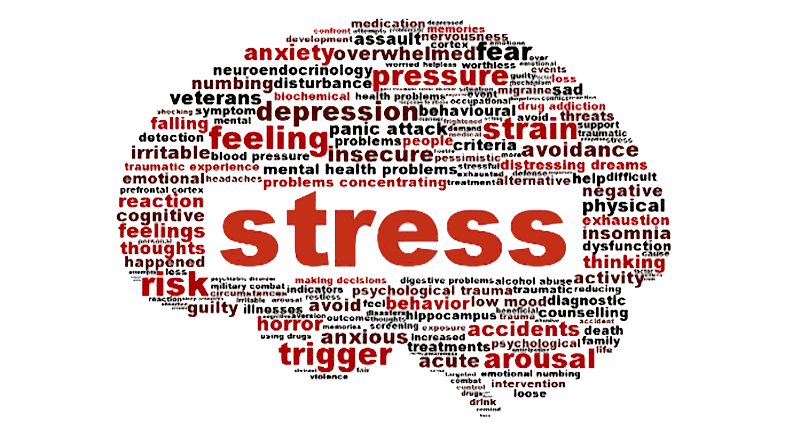Stress is a state of mental tension and worry caused by problems in your life, work, etc. It can suppress your immune system, upset your digestive and reproductive systems, increase the risk of heart attack and stroke, and speed up the aging process. It can even rewire the brain, leaving you more vulnerable to anxiety, depression, and other cognitive health problems.
We tend to think of stress as an immediate problem. But that’s only one part of the story. Over time, elevated levels of cortisol, the stress hormone, can chip away at our physical, mental and emotional health. The link between chronic stress and the potential for mental health conditions is well established.
Here are four ways stress changes your brain.
1- Stress could trigger a chemical change that makes you irritable. Under pressure, many people get distracted and forgetful and this could be a sign of the destructive effects of stress in the brain. These effects lead subjects to lose their sociability, avoid interactions with their peers and have impaired memory or understanding.
2. Chronic stress can shrink your brain. It reduces the volume of gray matter in brain that is the region associated with emotions, self-control and physiological functions. The lost volume in the brain’s medial prefrontal cortex is associated with emotional and cognitive impairment.
3. One stressful event can kill brain cells. Ongoing stress can halt the production of new neurons in the hippocampus and may also affect the speed of connections between hippocampal cells.
4. Stress can disrupt memory by triggering the brain’s threat response. While cortisol hampers the activity of the hippocampus, it increases the size and activity of the amygdala, the brain’s main center for emotional responses and motivation. The amygdala is responsible for fear processing, threat perception and the fight-or-flight response. Increased activity means we’re in a state of reacting to perceived threat, which can have the effect of restricting our ability to take in new information. It can also heighten emotional reactions.
5. Scientists have discovered that stress transmitted from others can changes the brain. Studies have showed that people think more about what others say about them. This stresses them about their image in their circles and their self esteem.

